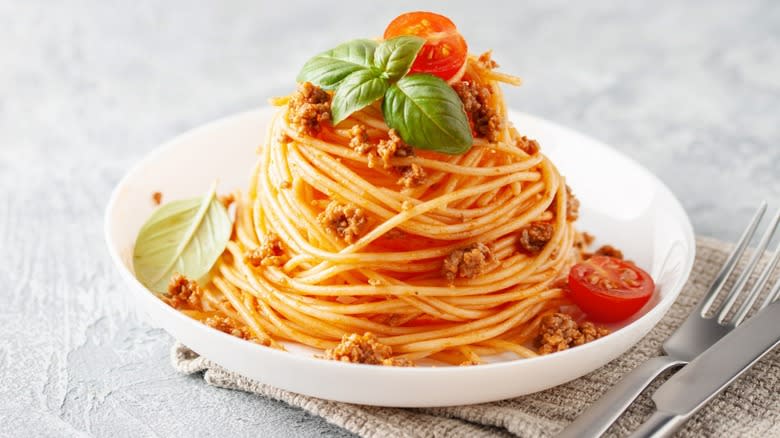Why You Should Start Cooking Your Pasta In Cold Water

Cooking pasta is more than just a routine kitchen task, it is an essential skill that spans various cuisines and dishes. The conventional method involves bringing a large pot of salted water to a vigorous boil before adding the pasta. However, an alternative technique that starts with cold water has been gaining popularity and might just revolutionize your pasta-cooking routine.
Starting noodles in cold water is unexpectedly efficient. This method reduces the overall cooking time. Since the pasta sits in cold water initially, it has more time to absorb water, allowing it to cook through more quickly once the water begins to boil. It's a timesaver, especially when preparing a quick meal or feeding a large group.
Energy efficiency is another significant advantage of this cold water technique since boiling a pot of water is energy-intensive and time-consuming. By starting with cold water, the amount of time the stove is on full blast is reduced, conserving energy. Cooking pasta this way also releases more starch into the water which is a valuable component when it comes to making sauces.
Read more: 44 Types Of Pasta And When You Should Be Using Them
Tips For Cooking Your Pasta

Cooking pasta may seem straightforward, but a few tips and tricks can profoundly impact the outcome. First, adequately salting the water is crucial, a step that some might underplay. While adding salt is common, ensuring enough is added is pivotal for perfectly cooked noodles. Some cooks even advocate for making the water as salty as seawater in order to flavor it sufficiently.
Tasting the pasta as it cooks is another essential practice. It's the best way to ensure that it's cooked to perfection. Consistently tasting helps avoid overcooking, hence preventing a soggy or mushy outcome. Furthermore, you should immediately strain the noodles once it reaches the al dente stage. Leaving pasta in hot water continues to cook it, risking overcooking.
Lastly, refrain from adding oil to the water. It's a common misconception that oil prevents sticking, but it can make the pasta too slippery, preventing sauces from adhering properly. Stirring the noodles occasionally as the water boils should prevent sticking, and the omission of oil allows the sauce to cling better, enhancing the dish's overall flavor and texture.
Read the original article on Tasting Table.


